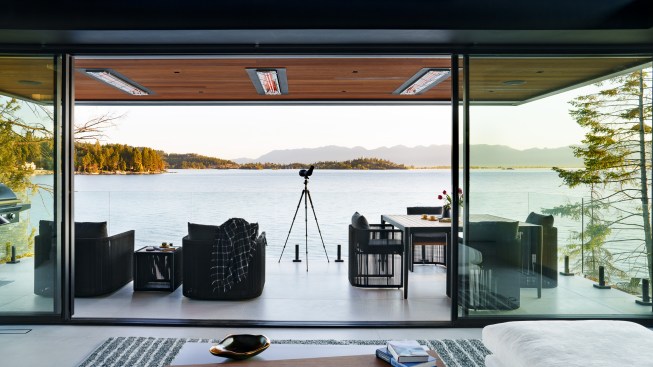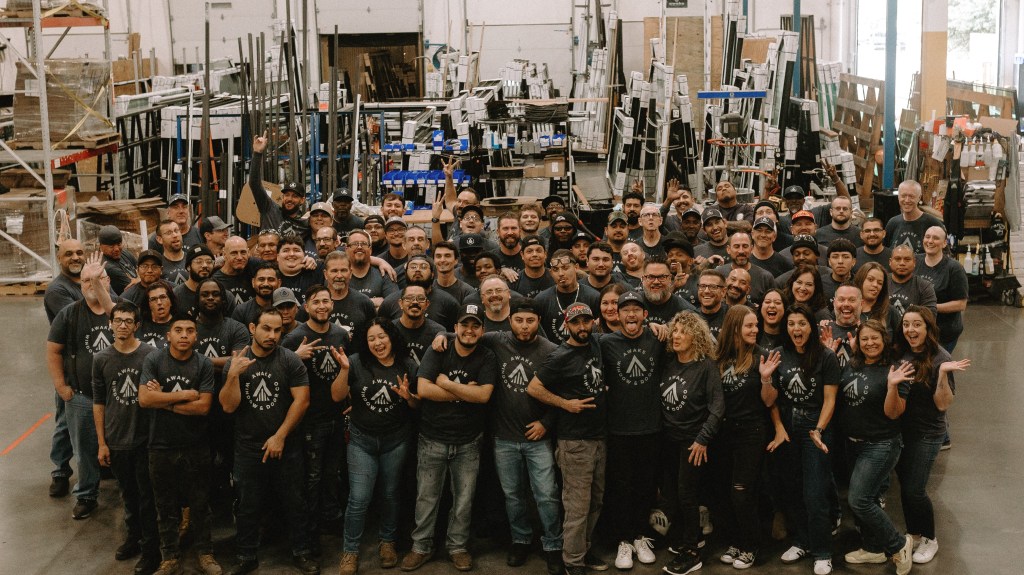Of the more than 100 employees at Awake Window & Door Co., over half are formally incarcerated individuals.
The company, which specializes in custom-made windows and doors, just hit its five-year anniversary and CEO Scott Gates says they set out with a goal of hiring the staff to be 40 percent formally incarcerated individuals. However, that percentage has increased as many team members have stayed with the company for four plus years proving Gates’ and his team’s theory to ‘give people a second chance.’
Last year, Awake posted over $30 million in sales in an industry that doesn’t really see start-ups among the well-known giants. Gates, his wife Maria, and executives John Engelstad and Andrew Darr wanted Awake to have a greater purpose when they stacked hands on the idea.
Combining their multidecade experience in the industry, they wanted to be able to serve both architects and builders with large-scale windows and doors with minimal frames while also employing one of the most vulnerable populations. Gates found that these individuals were getting the interviews, gaining respect from potential employees then background checks would send them right back on the job hunt.

Courtesy of Awake Window & Door Co
“I think what kind of broke my heart in those conversations is you’d meet these people and you’re like, ‘Man, you paid your debt to society and you’re really just ready to work hard and have an opportunity.’ And I think it was getting to know them that started the idea,” he says.
Over the course of starting the new company, Gate’s wife, who is a social justice advocate and Awake’s chief people officer, recommended several podcasts and books for research. And the more Gates began to learn about the complications of the justice system and what it’s like for people getting out of prison, the more they realized how difficult it is for individuals to reenter society.
They found that roughly 50 percent of individuals who were formally incarcerated end up back in prison within five years of leaving, according to data from the U.S. Department of Justice. Without context, Gates says it’s easy to assume that these individuals could be making mistakes, but usually that’s not the case at all.
“How can someone survive in society when they can’t get a good job, right? So after all of this information gathering and forcing ourselves to deal with a heavy issue, we decided to make it our goal,” Gates says.
“We’re going to be a part of the solution. This became the mission. So, everybody who gets hired, whether they had a record or not, we can say, ‘This is our mission. This is our why. Are you OK with that? And if you’re not, this isn’t the right company for you, but if you are, this is going to be some of the work you’re most proud of in your whole career.”
The Product of Its Culture
Awake’s doors and windows have narrower sight lines and frames than other manufacturers. “We’re kind of known for ‘big glass houses’ where the whole wall of the exterior is glass. Everything slides and disappears in a pocket,” Gates says.
The doors can be made with only three-fourths of an inch where they meet. Gates says that on a large 30- to 40-foot opening, there may only be a total of three inches of obstructed view for those panels to meet. The company assembles everything in its Gilbert, Arizona, facility and ships to projects throughout North America.

Courtesy of Awake Window & Door Co
And while Gates and the company as a whole are incredibly proud of the windows and doors they create, the best product to come out of Awake is gratitude, which is one of the company’s core values. Whether in the factory, storeroom, IT, or supply chain departments, there’s a culture of thankfulness throughout, Gates says.
“I’ve never met a people group who seems to embody gratitude more than someone who’s been incarcerated, is trying to turn their lives around, and just needs an opportunity. The culture and energy of the building and the staff is just positive,” Gates says. “I think there’s maybe a misconception. You could think about people who’ve come from prison and it’s going to be rough and violent, and it is the opposite of that. That’s something I didn’t predict, but it has been awesome to see.”
More Than a Strategy
Of course, Gates wishes that all business owners would consider hiring from this pool of individuals. “It’s not just the right thing to do. It’s a strategic thing to do,” he says. “What I mean by that is we have found some of the most incredibly talented people.
“A lot of these people, it wasn’t their dream when they were a kid to work for a window and door company, but they found us, and we found them because other companies were overlooking them.”
Taking it a step further, members of the team who were incarcerated have taken on mentorship responsibilities to help others who are in a ‘stabilization’ period. Awake also hosts monthly lunches for the entire company where the guest speaker is usually a wraparound service partner to help meet a need for the staff.
Because of Awake’s mission, Gates believes it’s the only way they’ve been able to recruit the ever-growing team they have five years in. A team that is ready to push the boundaries of quality and go above the status quo.
“If you stop thinking about it as this niche group of dangerous people and more about people you interact with every day, you’re going to find this untapped talent that really exists and you’re going to start to shift maybe your own stigma or biases,” he concludes. “And if we all as Americans start to do that, this kind of big problem maybe can get a little better one company at a time, which is kind of our dream.”
For a company that makes clearer, wider views, they’re opening more than just doors, but eyes to a systemic issue and its limitless possibilities.



